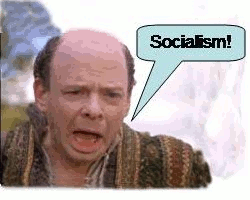 What makes a good President? Is Obama one? Would Sarah Palin be? I got to thinking about this after an innocent Facebook post of Kim’s on the Bristol-Levi engagement somehow turned into a rant that included the claim that as President, Palin “OBVIOUSLY could have done a better job than Obozo.” Something clearly not obvious to me, but the commenter was on a tear. While she didn’t express overall support for Palin, she made it pretty clear she thought an untrained beagle fresh off the Daisy Hill Puppy Farm would be a better choice than our current Commander-in-Chief.
What makes a good President? Is Obama one? Would Sarah Palin be? I got to thinking about this after an innocent Facebook post of Kim’s on the Bristol-Levi engagement somehow turned into a rant that included the claim that as President, Palin “OBVIOUSLY could have done a better job than Obozo.” Something clearly not obvious to me, but the commenter was on a tear. While she didn’t express overall support for Palin, she made it pretty clear she thought an untrained beagle fresh off the Daisy Hill Puppy Farm would be a better choice than our current Commander-in-Chief.
The issue she had was not so much with the policies as with the man. And this seems a fairly common theme among Obama’s detractors. It’s not clear there is any policy he could back that would appease them. And Sarah Palin generates similar enmity amongst her detractors. Policy aside, she appears to them as simply an unqualified person or the job. Yet I would venture there are pretty few people in common among those two groups.
Now in Obama’s case there is undoubtedly some latent racism going on, and in Palin’s case, some latent sexism. But I don’t think that accounts for the vast level of personal discomfort these two polarizing figures generate. I think it’s something more insidious.
It is perhaps useful to contrast Obama and Palin against two of our more effective Presidents in recent history. Reagan and Clinton both had tenures including significant accomplishment while maintaining fairly good approval ratings. Sure, they each had their scandals, but history seems to be ranking them roughly even, and head and shoulders above any other Presidents in my lifetime.
It strikes me that what these two men had in common was the ability to deal with complexity while conveying simplicity. The issues a President must deal with are massively complex. Not only the political process itself, but the economy, foreign policy, domestic policy, etc. all are gruesomely intricate and interwoven systems. Sure, anyone can surround themselves with experts, but actually understanding and interpreting the information from multiple experts across a wide field of topics requires a keen intelligence. And both of these guys could cut it.
Yet the cruel reality of American culture is that we inherently distrust intellectuals. While we worship those who are tougher than us, thinner than us, better athletes than us, better singers than us, or even more beautiful, we can’t stand a smartypants. Ironically, while we’ll aspire to be thinner, more beautiful, or in better shape, our response to someone who is our intellectual superior is not aspiration or inspiration, but rather we try to tear them down to our level. How dare they try to come off as smarter than us?
Reagan and Clinton both realized we like our reality pre-digested and boiled down to something we can absorb in a 30-second news feature. They were also masters of taking the abstruse and simplifying it, then presenting it in non-threatening and inspirational ways. They could motivate people toward the essence of a plan without burdening them with its inherent complexities.
Comparing that to Obama and Palin we see two very different things. They are each half of the equation that Reagan and Clinton used. Obama is clearly up to the intellectual challenge. He’s smart enough to be President, but he lacks the ability to convey a simplicity to his policies. He makes people feel lectured to rather than inspiring them toward a useful abstraction. The result is that he too often inspires fear and loathing rather than action and support.
On the flip side, Palin does a great job of selling simple ideas and inspiring people toward action and support. The problem is, she seems to really believe the world is that simple. There’s no evidence she’s up to the intellectual challenge of being President when the cameras aren’t rolling. In fact, there’s a fair bit of evidence she isn’t. In many ways, this is the same failing George W. Bush had. He was a likable enough guy, he had a certain folksy charm and did a fair job of making his points. But he lacked the intellectual depth to perform the core duties of President, and the country and his legacy suffered for that.
In the era previous to cable news and the Internet, wonky intellectuals could roam the White House halls as effective leaders. But Obama would seem to be the poster child for why those days are gone. Personally, I’m not troubled by that. I admire intellectuals. I want my leaders to be smarter than me. But I think people like me are in a minority.
Ideally, future Presidents will have the magic mix of complexity on the inside and simplicity on the outside. In the meantime, I assert long and loud that we are so very much better off with an effective intellectual executive who can’t seem to get his message right than being upside-down with a shallow overly simplistic talking head who is loved by the cameras but can’t fly the desk.
 But the pain is real. Families struggle to make ends meet, and this was true even before the most recent recession and the large unemployment numbers. Why can’t middle class America, at least the ones with jobs, comfortably make ends meet?
But the pain is real. Families struggle to make ends meet, and this was true even before the most recent recession and the large unemployment numbers. Why can’t middle class America, at least the ones with jobs, comfortably make ends meet?



